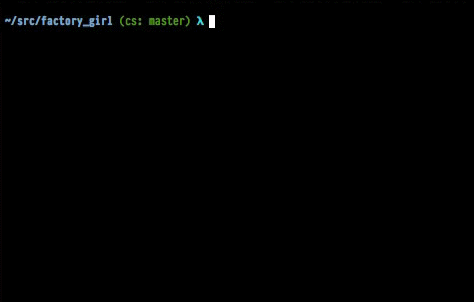Command-T for shell
Solution 1:
Zsh to the rescue!
Toss the following into your ~/.zshrc file and enjoy!
Please note, it may not be nearly as good as TM's ability to find file names but it's leaps and bounds better than the default autocomplete found in bash.
##############################################################
# Stuff from http://zshwiki.org/home/examples/compquickstart #
##############################################################
zmodload zsh/complist
autoload -U compinit && compinit
zstyle ':completion:::::' completer _complete _approximate
zstyle -e ':completion:*:approximate:*' max-errors 'reply=( $(( ($#PREFIX + $#SUFFIX) / 3 )) )'
zstyle ':completion:*:descriptions' format "- %d -"
zstyle ':completion:*:corrections' format "- %d - (errors %e})"
zstyle ':completion:*:default' list-prompt '%S%M matches%s'
zstyle ':completion:*' group-name ''
zstyle ':completion:*:manuals' separate-sections true
zstyle ':completion:*' menu select
zstyle ':completion:*' verbose yes
## case-insensitive (uppercase from lowercase) completion
zstyle ':completion:*' matcher-list 'm:{a-z}={A-Z}'
#zstyle ':completion:*' special-dirs ..
Solution 2:
Here's how I added Command-T/CtrlP fuzzy completion to my ZShell:
Step 1: Install matcher.
Step 2: Add the following to your ~/.zshrc:
_matcher_complete() {
integer i=1
(git ls-files 2>/dev/null || find .) | /usr/local/bin/matcher --limit 20 ${words[CURRENT]} | while read line; do
compadd -U -2 -V $i -- "$line"
i=$((i+1))
done
compstate[insert]=menu
}
zle -C matcher-complete complete-word _generic
zstyle ':completion:matcher-complete:*' completer _matcher_complete
zstyle ':completion:matcher-complete:*' menu-select
bindkey '^X^T' matcher-complete
Step 3: Enter a string to fuzzy-find, type CTRL+xt, and enjoy:
